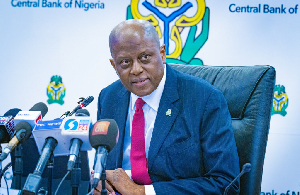The Federal Government is seeking a fresh $500m loan from the World Bank to expand access to finance for micro, small, and medium enterprises across the country.
The proposed facility, titled Fostering Inclusive Finance for MSMEs in Nigeria (FINCLUDE) Project, aims to mobilise private capital and promote innovative financial products for small businesses.
According to a project document obtained from the World Bank, the loan will help deepen credit access through the Development Bank of Nigeria and its subsidiary, Impact Credit Guarantee Limited.
“The proposed FINCLUDE Project leverages the platforms of the Development Bank of Nigeria and its subsidiary, the Impact Credit Guarantee Limited, to drive inclusive MSME finance,” the World Bank stated. “Through these catalytic institutions, the project will deploy a package of complementary, inclusive, and innovative instruments tailored to the diverse needs of MSMEs in Nigeria.”
The total cost of the project is estimated at $2.39bn, out of which $500m will be financed by the World Bank. Of the amount, $400m will come from the International Bank for Reconstruction and Development and $100m from the International Development Association.
The International Bank for Reconstruction and Development and the International Development Association are the two main lending arms of the World Bank Group.
While the IBRD provides loans on near-market terms to middle-income and credit-worthy low-income countries, the IDA focuses on the world’s poorest nations by offering concessional financing and grants funded by donor contributions rather than commercial borrowing.
The PUNCH further observed that the remaining $1.89bn will be provided by commercial lenders as unguaranteed financing. The Federal Government will serve as the borrower, while the Development Bank of Nigeria will act as the implementing agency with overall responsibility for managing the funds.
The World Bank noted that “DBN is a partner well known to the World Bank with high implementation capacity and a proven track record in designing and executing complex, innovative projects.”
The project, which is expected to be approved on December 18, 2025, comprises three components: inclusive and innovative MSME finance products; de-risking and mobilising private capital through partial credit guarantees; and technical assistance for modernising and digitising the MSME finance ecosystem.
Under the first component, the World Bank said the project would provide Tier 2 subordinated capital to eligible financial institutions and support the establishment of an MSME investment fund to provide equity and long-term debt to small businesses.
The bank explained that the initiative would help “crowd-in private capital, test market innovations and promote financial sustainability” in Nigeria’s small business sector.
It said the project would also provide targeted technical assistance to strengthen the capacity of financial institutions, improve regulatory oversight, and modernise the MSME finance chain linking DBN, lenders, and entrepreneurs.
The World Bank appraisal report highlighted Nigeria’s ongoing economic reforms, describing the country as being “in a critical transition.” It said the removal of fuel and foreign exchange subsidies, along with the unification of exchange rates, had begun to stabilise the economy and restore investor confidence.
The report added, “These reforms have improved fiscal space, enhanced FX liquidity, and eased inflation to 18 per cent as of September 2025. Growth prospects are strengthening, with the IMF projecting 3.9 per cent real GDP growth in 2025.”
Despite the reforms, the World Bank noted that access to finance remained uneven, particularly for small businesses, women, and agriculture. It said agriculture accounted for just over five per cent of total bank credit in 2024, while high interest rates and limited credit penetration continued to constrain lending to smaller enterprises.
If approved, FINCLUDE will be the latest in a series of World Bank loans to Nigeria. As of June 30, 2025, the country’s external debt stood at $46.98bn, according to figures from the Debt Management Office.
The World Bank Group remains the country’s largest single creditor, accounting for $19.39bn, comprising $18.04bn from the IDA and $1.35bn from the IBRD. This means the bank holds 41.3 per cent of Nigeria’s total external debt, underscoring its dominant role in financing the nation’s development programmes.
Business News of Sunday, 9 November 2025
Source: www.punchng.com













